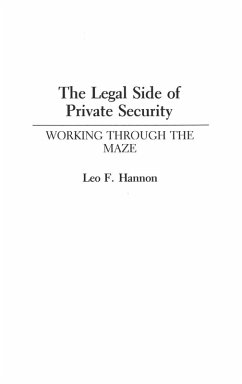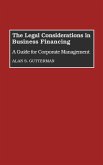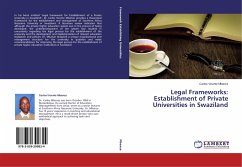Special attention is given to certain government-regulated areas such as transportation and there is inquiry into why some institutions including universities must make decisions based on a different set of security rules. This book covers a wide range of subjects from assault on employees to book covers a wide range of subjects from assault on employees to wire fraud by strangers. It should be of value to those involved in any way in the security business, employee relations people who are an integral part of the employment process, and lawyers advising in these multi-faceted areas.
Constant change and apparent self-contradictions seem to be integral parts of the numerous laws that confront people making security-related decisions. Why is it that sometimes it is necessary to get a warrant before making a search or give warnings before conducting an interview and sometimes it isn't? In some situations it seems legally safe to require drug tests while in others, the law seems to say it can't be done. Does the law look at the theft of a list of customers the same way it looks at the theft of computer hardware? It is the intent of this book to remove some of the confusion and uncertainty in answering these questions by reducing situations to their basic elements and observing how the different courts treat them. As a starting point, the author believes that it is essential for those involved in private security to understand their own mission and appreciate that they are not law enforcement officers. This concept is critical because of the marked differences in the rights and duties of the two sectors. The author then focuses on employer-employee relationships and considers the interrelationships of federal constitutional law, labor and discrimination laws, arbitration and state constitutional, statutory and tort laws. Attention is paid to the increasing exposure to state tort claims, such as unjust discharge, as the union-organized sector decreases in size. Business property rights are balanced against those of non-employees such as customers, trespassers, shoplifters, and demonstrators. Trends in the law are commented on and particular attention is given to those areas where business is being assigned more responsibility. As an example, it is pointed out that some courts are holding merchants located on quasi-public properties, such as malls, liable for injuries inflicted by strangers on customers. These legal issues are supplemented by a discussion of new legal avenues concerning theft of trade secrets and other properties. Special attention is given to certain government-regulated areas such as transportation and there is inquiry into why some institutions including universities must make decisions based on a different set of security rules. This book covers a wide range of subjects from assault on employees to wire fraud by strangers. It should be of value to those involved in any way in the security business, employee relations people who are an integral part of the employment process, and lawyers advising in these multi-faceted areas.
Hinweis: Dieser Artikel kann nur an eine deutsche Lieferadresse ausgeliefert werden.
Constant change and apparent self-contradictions seem to be integral parts of the numerous laws that confront people making security-related decisions. Why is it that sometimes it is necessary to get a warrant before making a search or give warnings before conducting an interview and sometimes it isn't? In some situations it seems legally safe to require drug tests while in others, the law seems to say it can't be done. Does the law look at the theft of a list of customers the same way it looks at the theft of computer hardware? It is the intent of this book to remove some of the confusion and uncertainty in answering these questions by reducing situations to their basic elements and observing how the different courts treat them. As a starting point, the author believes that it is essential for those involved in private security to understand their own mission and appreciate that they are not law enforcement officers. This concept is critical because of the marked differences in the rights and duties of the two sectors. The author then focuses on employer-employee relationships and considers the interrelationships of federal constitutional law, labor and discrimination laws, arbitration and state constitutional, statutory and tort laws. Attention is paid to the increasing exposure to state tort claims, such as unjust discharge, as the union-organized sector decreases in size. Business property rights are balanced against those of non-employees such as customers, trespassers, shoplifters, and demonstrators. Trends in the law are commented on and particular attention is given to those areas where business is being assigned more responsibility. As an example, it is pointed out that some courts are holding merchants located on quasi-public properties, such as malls, liable for injuries inflicted by strangers on customers. These legal issues are supplemented by a discussion of new legal avenues concerning theft of trade secrets and other properties. Special attention is given to certain government-regulated areas such as transportation and there is inquiry into why some institutions including universities must make decisions based on a different set of security rules. This book covers a wide range of subjects from assault on employees to wire fraud by strangers. It should be of value to those involved in any way in the security business, employee relations people who are an integral part of the employment process, and lawyers advising in these multi-faceted areas.
Hinweis: Dieser Artikel kann nur an eine deutsche Lieferadresse ausgeliefert werden.








